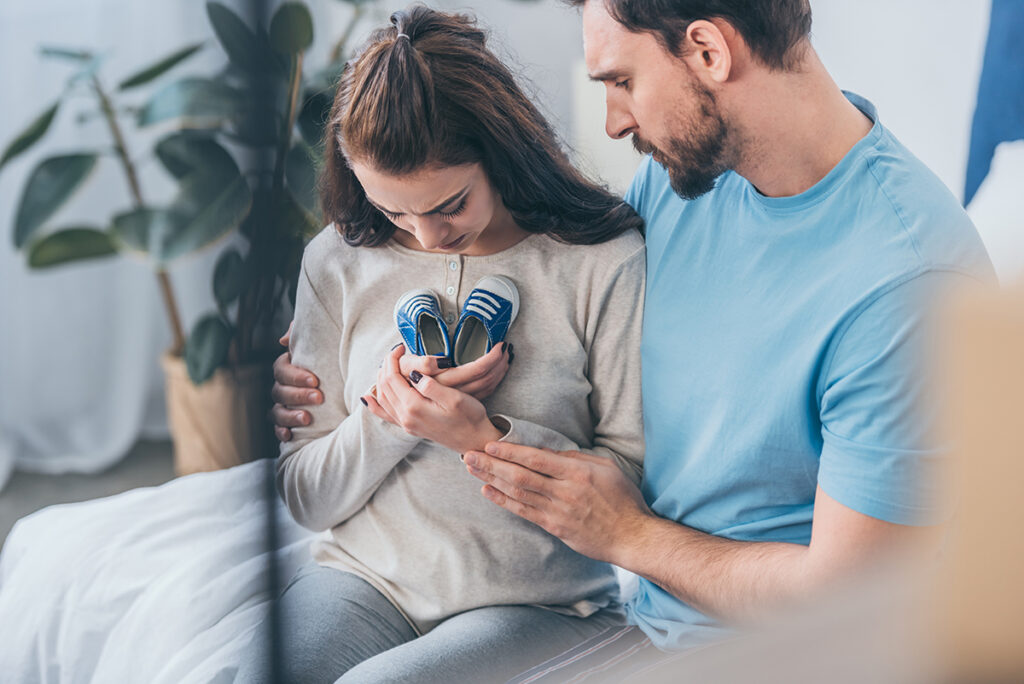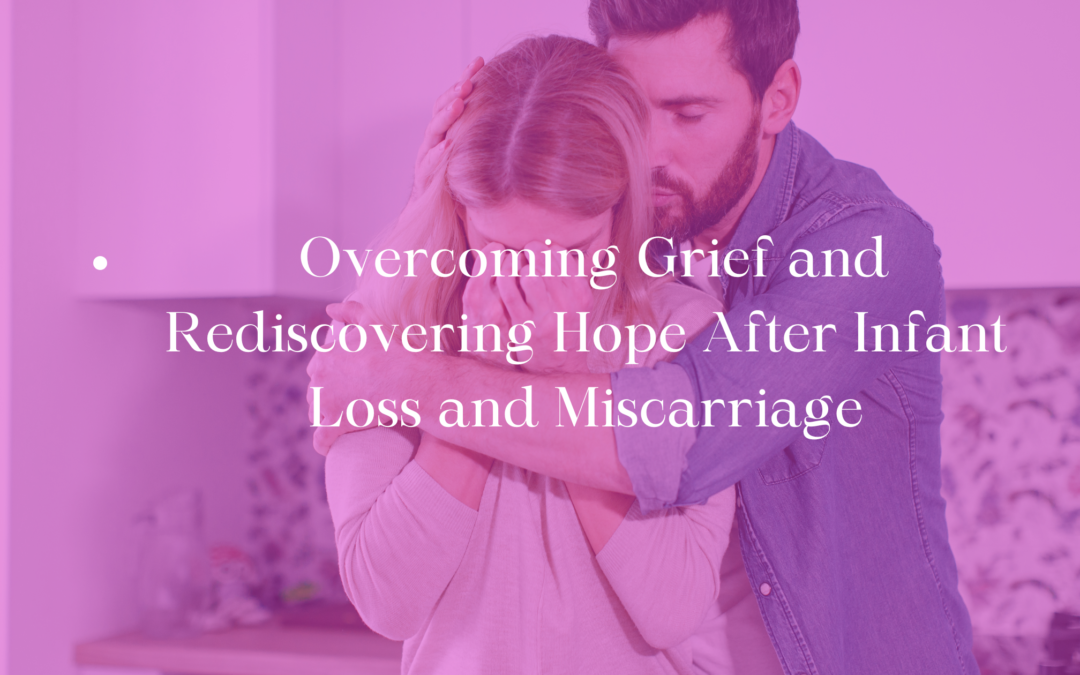The Unspoken Grief of Losing a Child

I’ve learned the vital importance of breaking the silence around the painful experiences of infant loss and miscarriage in my journey of healing and advocacy. These losses are not just statistics; they are heart-wrenching realities that affect countless families, leaving scars that last a lifetime.
The Harsh Reality of Infant Loss and Miscarriage
Infant loss and miscarriage are far more common than many people might think. Statistics show that 1 in 4 pregnancies ends in miscarriage, and over 2 million stillbirths occur worldwide each year. In the United States, Sudden Infant Death Syndrome (SIDS) claims the lives of approximately 38.4 infants per 100,000 live births. Tragedies can lead to emotional devastation that often impacts relationships, resulting in higher divorce rates among grieving couples. Despite these staggering numbers, the grief and trauma many parents experience often remain unrecognized and unsupported.
The Dark Days of Grief and Loss
For me, this issue is deeply personal. I lost my son, Samuel, to SIDS at just nine weeks old. Finding him lifeless in his crib began a profound journey through grief. The pain felt like a constant, suffocating presence that consumed my every thought and action. I felt utterly shattered, unable to find solace or understanding from those around me.
The emotional strain led to the disintegration of my marriage, and I found myself navigating single parenthood and pregnancy alone. My grief pulled me into a downward spiral of depression, isolation, and unhealthy coping mechanisms such as alcoholism. I felt as though every piece of me had broken beyond repair.
However, over time, and with sheer determination, I slowly began to reassemble the broken pieces. It was difficult, and there were many dark days, but I was driven by a deep desire to rebuild and find a way forward.
A Glimmer of Hope Amid Despair: Rediscovering Purpose After Loss
Amid my despair, I received the unexpected news that I was pregnant again. The idea of welcoming a rainbow baby—a child born after the loss of another—introduced a tiny sliver of hope back into my life. Though I was still grieving, the possibility of new life gave me a reason to believe that joy could return, even if it would forever be colored by the loss I had endured.
Healing after such a loss is not about “moving on” or forgetting. Instead, it’s about learning to live with the grief, carrying the memory of my child with me, and finding ways to honor their short but meaningful life.
The Grieving Process: Understanding and Navigating Your Emotions
Grief, especially after infant loss or miscarriage, is a complicated and intensely personal process. It can manifest in many ways: profound sadness, anger, guilt, numbness, or even relief. There is no “right” way to grieve; every parent’s journey through this emotional landscape is unique.
Some of the key emotional stages of grief include:
- Shock and Denial: The initial disbelief after losing a child can feel surreal, leaving parents in an emotional state of numbness or disbelief.
- Anger and Guilt: Anger is a common reaction—anger at the world, at the circumstances, or even at oneself. Guilt often follows, as parents may question if they could have done something differently to prevent the loss.
- Depression and Isolation: The weight of grief can lead many to withdraw from others, believing that their pain is misunderstood or fearing that their loss will make others uncomfortable.
- Acceptance and Hope: Acceptance may come in time. This does not mean “moving on” but rather finding a way to live with the loss, honoring the child while allowing room for healing and growth.
The Catalyst for “The Healing Cocoon”

Inspired by my personal tragedy, I wrote the book The Healing Cocoon: Emergence after Infant and Pregnancy Loss. It was dedicated to my son, Samuel, and reflects the transformative journey of grief. The image of the cocoon symbolizes the suffocating darkness of grief that, once broken, allows new growth, symbolized by the butterfly’s emergence.
Healing is not linear, and the journey is difficult. But through my process, I discovered various tools to manage grief and rebuild my life. These tools—ranging from anxiety-reduction techniques to Reiki and Emotion Code practices—have become part of the programs I now offer to others through my platforms My Healing Cocoon and Worthy Femme. These communities offer support, tools, and a safe space for those struggling with the pain of child loss.
Healing Tools and Techniques
Throughout my journey, I discovered a variety of tools that helped me cope with my grief. These include:
- Anxiety Reduction Techniques: Learning how to manage the overwhelming anxiety that often accompanies grief was a key part of my healing. Techniques like deep breathing, mindfulness, and grounding exercises helped me regain control of my emotions.
- Self-Soothing Practices: Creating moments of self-care—whether through journaling, meditation or simply permitting myself to rest—helped me find small moments of peace amidst the chaos of loss.
- Grief Counseling: Working with a therapist who specializes in grief gave me a safe space to process my emotions without fear of judgment. Therapy was a lifeline during my darkest moments.
- Reiki and Emotion Code: These holistic healing practices became transformative tools in my journey. Reiki helped me feel more connected to my body and emotions, while Emotion Code allowed me to release trapped emotions that were hindering my healing.
Building a Community of Support
The journey of healing from infant loss is deeply personal, but it is not one that parents need to face alone. Support networks are essential in navigating the complex emotions and isolation that accompany grief.
There are several forms of support available:
- Grief Counseling: Trained professionals can guide parents through their grief, helping them healthily process their emotions.
- Support Groups: Joining a group of parents who have experienced similar losses can be an invaluable source of connection and comfort. There is no need to explain the depth of the pain in these spaces—everyone understands.
- Online Communities: For those who prefer anonymity or cannot attend in-person meetings, online communities offer a platform for parents to share their stories and solace in one another’s experiences.
- Books and Resources: Reading about the journeys of others who have experienced loss can provide comfort and remind parents that they are not alone.
Rediscovering Hope: Honoring the Past, Embracing the Future
Finding hope after the loss of a child is not about erasing the pain or forgetting what has been lost. It is about rediscovering joy and purpose while honoring the life taken too soon.
There are many ways that parents can rediscover hope:
- Personal Growth: Grief often forces us to reflect on life’s deeper meanings, and many parents find that the process leads to personal growth and transformation. Though the pain never fully disappears, it can shape us into stronger, more compassionate individuals.
- Honoring Your Child’s Memory: Many parents find comfort in creating rituals or memorials for their lost child. Whether it’s planting a tree, lighting a candle on anniversaries, or engaging in acts of kindness in their child’s name, these gestures can help keep their memory alive.
- Advocacy and Support: For some, finding purpose in advocating for others who have experienced similar losses can be a powerful way to channel their grief. Whether it’s through raising awareness about infant loss or supporting others in their healing journeys, advocacy can provide a sense of purpose.

You Are Not Alone in This Journey
If you or someone you know is struggling with the grief of infant loss or miscarriage, remember that you are not alone. Through support, community, and healing tools, it is possible to survive and even thrive beyond the grief. I invite you to join our My Healing Cocoon community to rediscover hope, share in our collective strength, and know that the silence around infant loss can be broken. Healing is possible, and while the journey may be long, there is hope.
By breaking the silence surrounding infant loss, we can create a world where no parent has to grieve alone. Together, we can support one another, honor our children’s memories, and rediscover hope for the future.


